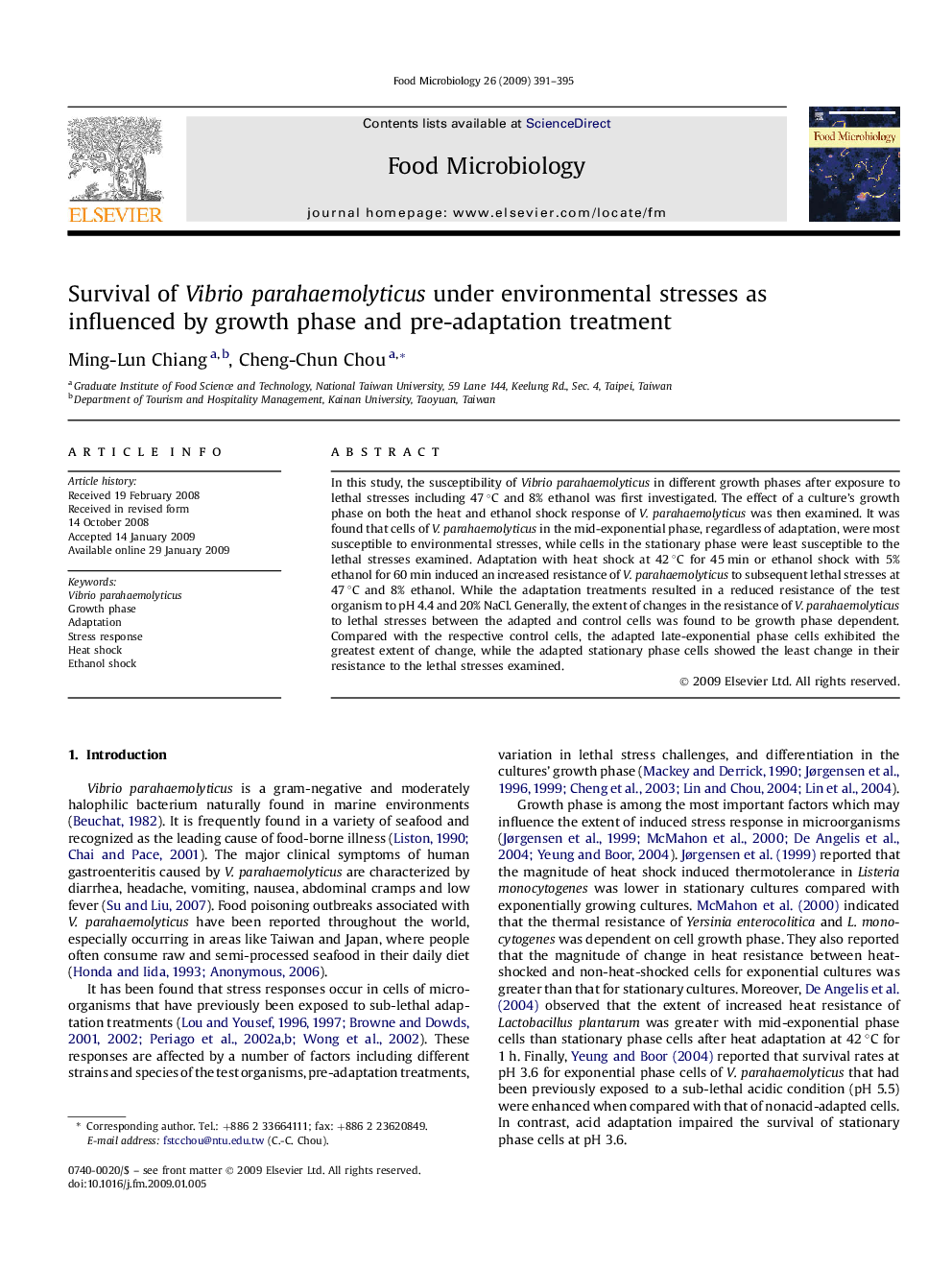| Article ID | Journal | Published Year | Pages | File Type |
|---|---|---|---|---|
| 4363660 | Food Microbiology | 2009 | 5 Pages |
Abstract
In this study, the susceptibility of Vibrio parahaemolyticus in different growth phases after exposure to lethal stresses including 47 °C and 8% ethanol was first investigated. The effect of a culture's growth phase on both the heat and ethanol shock response of V. parahaemolyticus was then examined. It was found that cells of V. parahaemolyticus in the mid-exponential phase, regardless of adaptation, were most susceptible to environmental stresses, while cells in the stationary phase were least susceptible to the lethal stresses examined. Adaptation with heat shock at 42 °C for 45 min or ethanol shock with 5% ethanol for 60 min induced an increased resistance of V. parahaemolyticus to subsequent lethal stresses at 47 °C and 8% ethanol. While the adaptation treatments resulted in a reduced resistance of the test organism to pH 4.4 and 20% NaCl. Generally, the extent of changes in the resistance of V. parahaemolyticus to lethal stresses between the adapted and control cells was found to be growth phase dependent. Compared with the respective control cells, the adapted late-exponential phase cells exhibited the greatest extent of change, while the adapted stationary phase cells showed the least change in their resistance to the lethal stresses examined.
Related Topics
Life Sciences
Agricultural and Biological Sciences
Food Science
Authors
Ming-Lun Chiang, Cheng-Chun Chou,
